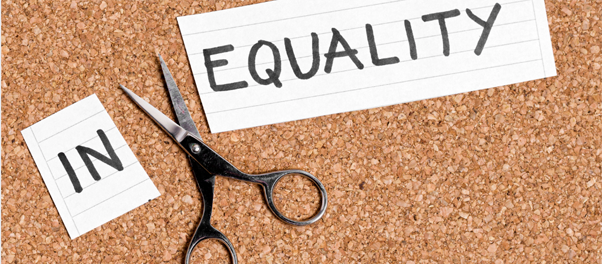By understanding how lay people interpret these everyday indeterminate rules, researchers and experts may better understand and predict how people and institutions will administer rules in unexpected or changing circumstances, such as the COVID-19 pandemic and volatile social environments. This the bottom line of a recently published article in Law and Human Behavior. Below is a summary of the research and findings as well as a translation of this research into practice.
Featured Article | Law and Human Behavior | 2021, Vol. 45, No. 4, 287-309
Empathy Influences the Interpretation of Whether Others Have Violated Everyday Indeterminate Rules
Authors
Jennifer LaCosse, Bates College
Victor Quintanilla, Indiana University
Abstract
Objective: People encounter institutional rules in many settings of their lives—from schools to workplaces, from commercial places to public spaces. Often these everyday rules are indeterminate, requiring people who apply them to use their own discretion. Psychological processes help explain how lay people decide whether others have violated these everyday rules. Hypothesis: We predicted that when lay people empathize with others, they are less likely to decide that the people they empathize with violated everyday indeterminate rules. Method: We performed two correlational studies (Studies 1 and 2) and two experiments (Studies 3 and 4) using MTurk. We asked participants to read 3 dilemmas involving indeterminate institutional rules (Studies 1–3) or one dilemma (Study 4) and decide whether people violated such rules. Results: Greater empathy for people in these dilemmas was associated with a lower likelihood of deciding that rules were violated—even when controlling for the perceived harmfulness of the infraction—regardless of whether empathy was independently rated in explanations provided by lay people about their decisions (Study 1; N = 725; 51% female; 76.8% White), measured in the form of self-reported empathic concern and inclusion-of-self-in-other (Study 2; N = 1,159; 58% female; 78.9% White), or manipulated based upon whether a person transgressed a rule for selfish versus altruistic rea- sons (Studies 3; N = 1,073; 53% female; 77.7% White). Moreover, when we manipulated both empathy (selfish vs. altruistic transgression) and rule indeterminacy by altering whether the rule was silent about potential exceptions (indeterminate rule) versus absolutely rejected all exceptions (determinate rule), the likelihood of deciding a rule was violated was lowest when the rule was indeterminate and transgressed for altruistic reasons (Study 4; N = 239; 42% female; 77.0% White). Conclusions: Overall, results reveal a robust effect of empathy on how lay people resolve rule indeterminacy in everyday life, which may foster or frustrate law and public policy, and has implications for the resilience of institutions.
Keywords
decision making, empathy, indeterminacy, laypeople
Summary of the Research
“Scholars have long called for the study of ‘law in action’ and research examining how ordinary members of the public resolve informal nonlegal problems arising in everyday life. While lay people encounter many kinds of informal problems, the current work focuses on problems related to the meaning of rules in everyday institutional contexts (e.g., schools, hospitals, workplaces, and public spaces). This focus is important because these everyday institutional rules communicate norms and values, shape perceptions of legitimacy, and prompt demands for institutional change and change in law and public policy more broadly” (p. 288).
“[P]ast research has examined the influence of empathy in moral and legal decision-making. Yet there is a dearth of research examining empathy’s role in decisions about how lay people resolve indeterminacy within institutional rules that apply in everyday life—making this the target of the current work. We predicted that the more empathy people feel toward people whose actions come into conflict with such rules, the less likely they will be to decide that these rules have been violated. In other words, we focus on the psychological processes involved in how laypeople apply indeterminate institutional rules and its relationship with perceptions of people who transgress those rules” (p. 289).
“Consistent with the empathy-altruism hypothesis, we predicted that, when lay people empathize with another, they are less likely to find that the person they empathize with has violated an indeterminate rule. Our findings across four studies support the theory that empathy influences how lay people interpret everyday indeterminate institutional rules, even after controlling for the harmfulness of the rule infraction. We found this to be the case when the explanations lay people provided were independently rated for empathy, perspective taking, and the belief that an exception should be made (Study 1), self-reported in the form of empathic concern and self-other overlap (Study 2), or manipulated based on whether a person transgressed the rule for selfish versus altruistic reasons (Studies 3 and 4)—speaking to the generalizability of these results” (p. 304).
“Moreover, empathy for the person whose actions conflicted with the rule was a better predictor of decisions about rule violations than the participant’s gender or the actor’s gender. In addition, state empathy measured in two ways—(for example, ‘I feel compassion toward Mrs. Jones’ and the inclusion-of-other-in-self scale)— was a better predictor of decisions about rule violations than more general, trait levels of empathy and perspective taking. The fact that state empathy predicted these decisions above and beyond alternative predictors highlights the robustness of empathy’s influence on lay decision making about rule indeterminacy. Finally, we found evidence that when indeterminate rules are transgressed for altruistic reasons, laypeople believe that the rule has greater implications for the creation of laws compared with when the rule was determinate in the same situation and compared with when both indeterminate and determinate rules are violated for selfish reasons. Taken together, the current work extended past research on the role of empathy in decision making by examining its effects in a novel decision-making context. Indeed, despite how common indeterminate institutional rules are across society today and the impact of these rules in the everyday on people, institutions, and society writ large, to our knowledge this is the only research to date that examines the psychological process of how lay people resolve rule indeterminacy when deciding whether these institutional rules have been violated” (p. 304).
“People encounter institutional rules in virtually every social context of their lives—from schools to workplaces and from commercial places to public spaces. Central to the current work, these everyday institutional rules are often indeterminate and capable of being understood differently depending on the needs of the circumstance. How lay people interpret these rules entails subjectivity, and their interpretations vary depending on context, especially because these institutional rules do not anticipate all circumstances, changed realities and conditions, or reasonable exceptions. As such, lay people use their discretion when applying indeterminate rules and deciding whether others have violated them. In this article, we have uncovered an important psychological process that helps explain how lay people resolve this rule indeterminacy. Mainly, we found that when lay people empathize with a person who has transgressed an everyday indeterminate rule, they are less likely to find that the person they empathize with has violated the indeterminate rule. These findings seed important and exciting paths for future inquiry, including designing training programs and interventions that teach lay people how to exercise empathy wisely and fairly when interpreting everyday indeterminate institutional rules” (p. 306).
Translating Research into Practice
“One implication of this research is that there may be societal, institutional, interpersonal, and intrapersonal benefits to training lay decision-makers on how to exercise empathy when applying institutional rules in these everyday contexts. For example, lay people who exercise empathy may be more sensitive to the demands of a particular context and, therefore, less likely to apply rules rigidly in ways that impair these everyday institutions. In return, those governed by these indeterminate everyday rules may be more likely to comply, engage, and cooperate with these institutions. The need for institutions and lay decision-makers within these institutions both to adapt to changing circumstances and to exercise empathy is highlighted by the public health crisis wrought by COVID-19 and the need to rapidly change policies and practices to promote human welfare. This need is also highlighted by the renewed focus on racial disparities in policing and racism more generally and calls for these everyday institutions to adapt to address racial injustice. This underscores the very real consequences of rule indeterminacy, the need to understand the psychological processes behind people’s resolution of it, and the ways which indeterminate institutional rules may provide opportunities for disparate treatment” (p. 305).
“The finding that empathy plays a role in lay people’s resolution of indeterminate rules is particularly impactful because, all else being equal, people feel less empathy toward members of stigmatized groups, which suggests that, without learning how to exercise empathy more broadly, the way many lay people apply institutional rules in the everyday may reinforce disparities and inequality. Yet it may be possible for lay decision-makers to exercise empathy in ways that reduce the expression of bias toward members of stigmatized groups when applying institutional rules” (p. 305).
Other Interesting Tidbits for Researchers and Clinicians
“[A] important direction of psychological research is developing empathy interventions. Empathy interventions have been successfully designed and implemented within institutions, such as hospitals and schools. For example, one empathy intervention had teachers read about the importance of taking students’ perspectives, read stories from students about times teachers have been empathetic, and complete a writing prompt about how they could form positive relationships with students. Compared with a control treatment, the empathy intervention reduced year-long suspension rates and increased respect for at risk students. This suggests that empathy interventions may make institutions like schools more resilient by helping lay decision-makers become more sensitive to contextual demands and the needs of those served when applying everyday institutional rules” (p. 305).
“It is worth noting that, if the concern is reducing bias against vulnerable groups, then a second approach may be to target indeterminate rules, reducing the subjectivity and discretion within these rules. Yet as noted at the outset of this article, some degree of indeterminacy is present in virtually all everyday rules; moreover, empathy appears to alter the leeway found when applying even determinate rules. Accordingly, we suggest targeting both the psychological processes involved and the indeterminate rules themselves. Although beyond the scope of this article, these implications open important and exciting paths for much needed inquiry” (p. 305).
Join the Discussion
As always, please join the discussion below if you have thoughts or comments to add!





















